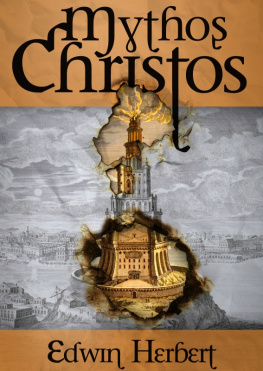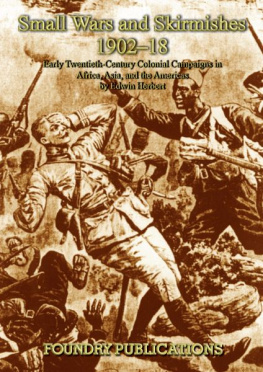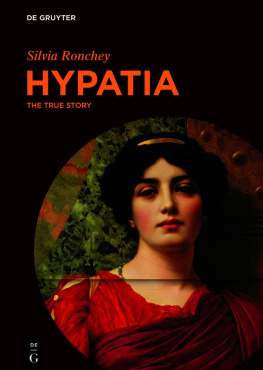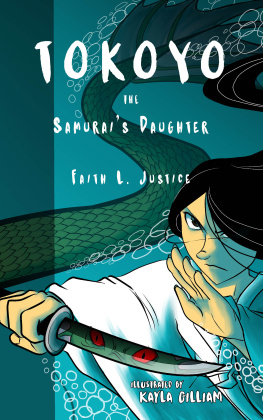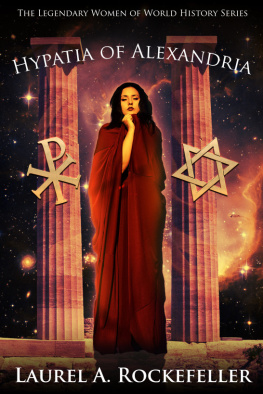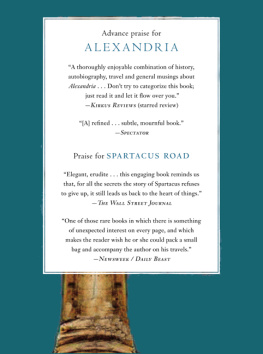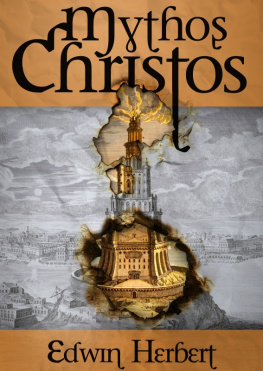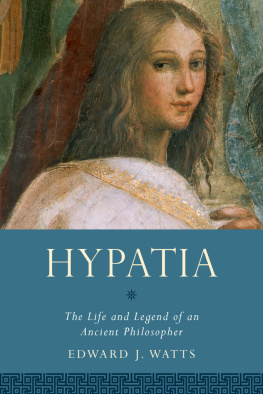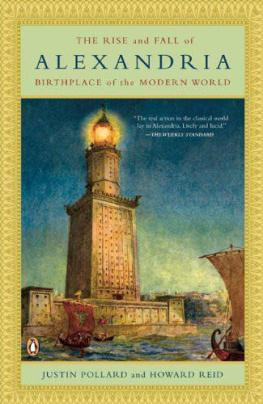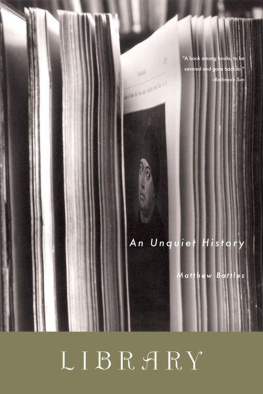This book is a work of fiction. Names, characters, businesses, organizations, places, events, and incidents either are the product of the authors imagination or are used fictitiously. Any resemblance to actual persons, living or dead, or actual events is entirely coincidental.
Copyright 2016 by Edwin Herbert
All rights reserved. This book or any portion thereof may not be reproduced or used in any manner whatsoever without the express written permission of the publisher except for the use of brief quotations in a book review.
First Edition
ISBN 978-1-6822297-5-0
Published by BookBaby
www.bookbaby.com
Acknowledgments
I would first like to thank the authors of the many books Ive drawn from for information and diagrams: David Fideler, whose Jesus Christ: Sun of God was a trove of eye-opening wisdom; Kieren Barry for The Greek Qabbalah; Richard Carrier for both his scholarly books and his suggestions; Earl Doherty, Robert Price and D.M. Murdock.
I also want to thank my beta readers and advisors for helping make my novel far more readable: Hank Zumach, Betty Hammond, Tom Scarseth, Jeremy Fejfar, Maria Runde, Josh Everett, Nick Newman, Mary Leuther, and especially Larry Bastian, the head of our local writers group, who went over my manuscript with a fine-toothed comb. I cannot thank these friends enough for their time and encouragement.
Finally, I would express gratitude to my illustrator, George Severson, and also the fine fellow at www.godlesssavage.com for his tireless work in creating both my book cover and my website.
Note:
For more information about Mythos Christos and the Christ myth in general, visit my website at www.MythosChristos.com . There you will find a printable Gematria Key which will enable you to better understand and follow Lexs numerical decryption of Hypatias riddles.
Edwin Herbert
January, 2016
CONTENTS
Rome, Italy
February, 2006
Sir Stephanos studied his reflection as he applied the spirit gum to his jawline. He preferred this type of theatrical adhesive as it could be easily removed without leaving much visible skin irritation. With intense concentration he attached the delicate white beard, a realistic blend of crepe wool and human hair. He then camouflaged a small scar on his cheek with morticians wax and added crows feet to the corners of his eyes. White wig, brows, and sideburnshis transformation was complete.
Incognito as an elderly locum tenens, a temporary fill-in doctor, he entered the Hospital Tiberina well after visiting hours hoping to call on his injured knight, Sir Reynoldo. He paused near the elevators to view a painting of the old hospital. The plaque beneath told of the buildings construction on the river island in a bygone age. Stephanos was intrigued to learn it had been built over an ancient Roman temple of Asclepius, a god of healing.
Hanging a stethoscope around the collar of his pristine clinic jacket, he stepped off the elevator and asked a nurse to direct him to the patients room.
Oh, si, she said, handing him the medical record, the patient with the strange branding scars on his arm. Room 411. We hadnt expected more doctors until morning. But its just as well. His injuries are rather extensive.
The elderly physician slipped into the hospital room and inspected the patients shoulder to verify he bore the mark of the KSG, the Knights of Saint George.
Reynoldo half opened his bleary eyes and peered up at him. Salve Dottore, he whispered.
Stephanos smiled amiably. I hear youve had quite a fall. He glanced at the patients record. Broken tibia, cracked ribs, and possibly some internal damage. Can you tell me what happened?
Slipped Reynoldo gasped with difficulty. Toppled off a balcony. Rainy nightlost my footing.
Stephanos nodded and took the patients pulse, carefully moving the nurses call button out of reach. He then produced a syringe and a small vial from his pocket and prepared it. Holding it like a cigarette, he folded his arms and said, You failed to complete your mission. The Jesuit yet lives.
Reynoldos eyes widened. Whoare you?
Ignoring the question, Stephanos continued his indictment. If there is one thing Ill not abide, it is incompetence. This was your third failure. He shook his head in disgust. Not only that, but weve received reports of repeated indiscretions and public boasting. Braggadocio cannot be tolerated in a society so dependent upon confidence and secrecy. Of course, the Brotherhood would never condone the execution of one of their own, nor do they discharge their knights, honorably or otherwise. Nevertheless, something has to be done.
In no condition to defend himself, Reynoldo could only gape.
It is regrettable, Stephanos murmured. But that was a lie. The Grand Paladin of the Brotherhood felt no more remorse when taking a life than did a cobra upon striking its prey. He stabbed the needle into the I.V. port and squeezed the plunger.
That was a little something to help you sleep. Sweet dreams.
He left with haste, lest the heart monitor signal the patients imminent cardiac arrest to the nurses station before he could make his exit. His plan worked so perfectly that none, not even the Brotherhood, would suspect foul play.
It will be hard for you who have taken authority as truth, rather than truth as authority.
Gerald Massey
Oxford University, England
Late May
Floorboards creaked as Lex Thomasson approached the front of the classroom. Picking up a nub of chalk, he scrawled two words on the slate. He then turned to face his fellow students, most of whom looked bored, distracted, and uncomfortable. Some fanned themselves with notebooks. Though the windows were open, the air in the room was humid and stagnant. But thunder, distant and delicate, murmured rumors of a coming storm, promising to break the fever and end the unseasonable heat wave.
In stark contrast to the students, Professor Morley appeared riveted. He leaned against the window sill, his aged, moist eyes glistening with keen interest. The Oxford don once declared that Lex never failed to find some linguistic pearl Morley had never heard of, a rarity for the old teacher of ancient languages. He actually rubbed his hands together with anticipation.
Lex was in his element. Not the speeches, they frayed his nerves every time. Rather, the academic arena itself. He glanced around the room, a throwback to an earlier era. The antiquated wooden chairs, chalkboards, even the old schoolhouse smell had characterized one of the few remaining ancient halls that had yet to be refurbished or torn down. He would miss the atmosphere of Oxford, perhaps this room most of all.
He was twenty-four, though he looked younger, and was in his last days of the masters program. Hed anticipated continuing on next year in the doctoral program, yet that was uncertain as his scholarship came to an end and he had no idea how he would pay for further education. But as his grandfather used to say, One disaster at a time.
Lex felt prepared for his final presentationa literary analysis of two words with similar meanings but from different languages, not an unusual assignment for a masters level philology course. Yet only now, as he stood facing a group of his peers, did he wonder if he should have chosen a less controversial topic. At least, he thought, it might rouse some of them from their finals week stupor. He took a deep breath to govern his anxiety.
For ancient Greek and Roman story writers, Lex began, adjusting his glasses and raking nervous fingers through unruly brown hair, it was not an uncommon practice to draw from earlier myths, legends, and epics as models for their own sagas. Scenes from Homers Iliad and Odyssey were probably the most common source material for emulation. Were not talking about outright plagiarism, mind you. Rather, emulation was more of an imitation with alteration to better align with cultural, political, or religious sensibilities of the later writers target audiencea transvaluation, in other words, which reflected the shifting values of the times.

